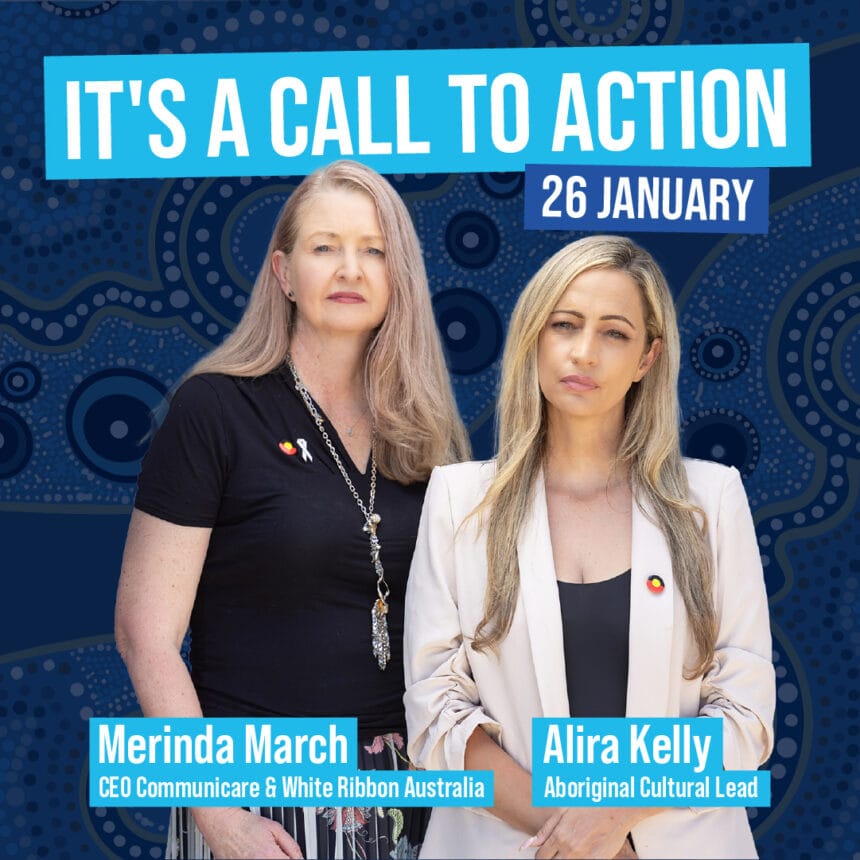
It’s a call to action. January 26th
Changing the date of Australia Day is not just symbolic—it’s a call to action. It’s a chance for our nation to truly hear, act, and stand in solidarity with the…
This website may not work correctly in Internet Explorer. We recommend switching to a more secure modern web browser such as Microsoft Edge which is already installed on your computer.
The holiday season and heading back to school can be a time of heightened stress for young people, particularly for those with families that may be impacted by drug and alcohol misuse, poverty, family separation and mental health problems.
These young people benefit from the stimulation, support and structure of a school environment that recognises the unique challenges they face.
To put this into perspective, let’s look at ‘Caitlin’s’ life. Her mother has a problem with alcohol and her dad’s currently in prison. Most days she gets herself ready and makes her own way to school. Sometimes she feels guilty about leaving her baby brother at home, depending on how bad Mum is.
Caitlin stopped attending her old high school more than a year ago. She couldn’t see the point, but we could.
Although Caitlin isn’t a real person, her story is. There are a thousand different variations on this same theme impacting the lives of vulnerable young people in Western Australia and putting barriers in the way of their development.
A school attendance of less than 90% places students at severe risk of lowered educational outcomes. Absenteeism increases social isolation, poor mental health outcomes, and ongoing disengagement from the community.
These issues can affect anyone, and demand for places at specialist re-engagement schools grows year-on-year as mainstream schools struggle to meet the demand for support resources and flexible learning options.
Disengagement from education becomes a vicious cycle that limits students’ potential and their ability to function in mainstream society. Without the support, the guidance and knowledge that comes with an education, young people like Caitlin can fall through the cracks with no safety net to break their fall.
This is where alternative education pathways can play a role in providing young people with a safe landing. A place that creates education opportunities to meet their unique needs at a pace they can manage while still dealing with the many other challenges in their young lives.
Communicare Academy is a Curriculum and Reengagement in Education (CARE) School in Kenwick. CARE schools provide year 7-12 students a unique approach to re-engagement in their education journey, focusing on student wellbeing and education support. They also provide flexible learning options and modified curriculums to re-engage students at-risk of falling through the cracks, or those who have been disengaged for some time.
At the Academy we see young people with a range of issues, including childhood trauma as a result of physical and/or sexual abuse, untreated mental health problems, undiagnosed learning disabilities, teenage pregnancy, family dysfunction, and drug and alcohol misuse, just to name a few.
These issues can lead to chronic absenteeism and disengagement from education, which large mainstream schools are finding increasingly difficult to support.
Our school is designed to support student wellbeing as a priority, which leads to improved student education outcomes. All students have access to a school psychologist, social worker, behaviour support assistant, cultural support officer, a clinical psychologist two days per week, and a nurse practitioner one day per week.
Our school has a maximum of 92 students at any one time, with this level of support making a massive difference in student attendance and engagement. When our students are at mainstream schools their average attendance is 30%; once they start attending the Academy, their average rises to 78%.
As we start the new school year, we put in place a range of measures to further support our students to re-engage and provide additional support where needed. If there are issues around non-attendance, we reach out to understand what’s going on in their world and what we can do to help them get back on-track.
Along with educational support, the Academy works with organisations like Oz Harvest and Foodbank to provide families with nutritional food hampers. Also, with cost of living pressures continuing to hurt vulnerable West Australians, we try to help out with school supplies where needed.
Getting back to Caitlin, she is now receiving mental health support, showing greater interest in learning, and has started planning for the future.
At Communicare, our goal for everyone we work alongside is to provide hope and ‘create futures’, every day. Our future is in the hands of our children and young people. It’s beholden on all of us to make sure they are nurtured, supported, kept safe and given the opportunities they deserve.
Melissa Perry, Chief Executive Officer
Matthew Borgward, Principal Communicare Academy